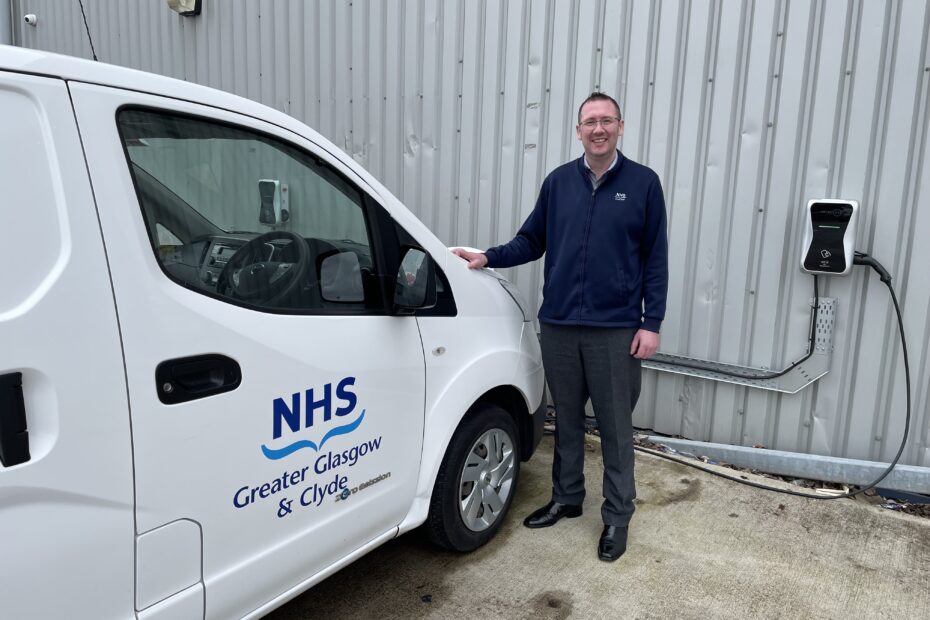
A total of 200 NHS Greater Glasgow and Clyde (NHSGGC) drivers have now completed the Fuel Good driving certification to help reduce their carbon footprints as the health board continues its transition over to electric vehicles.
Fuel Good helps train drivers on the most efficient and economical ways to save money on fuel and reduce their environmental impact.
The programme is hugely important to NHSGGC, whose drivers can clock up anything between 100 – 1000 miles per week. Now, with a fleet of more than 120 electric vehicles, the board is well on its way towards its net-zero target as it looks to implement new measures and facilities to support staff to work in a more environmentally friendly way.
Matthew Monaghan a transport supervisor at the health board’s Dava Street transport hub. Matthew manages a vast team of drivers to ensure goods and patients get to where they need to be on any given day. With more than 10 years’ experience and also having completed the Fuel Good driving certification, Matthew outlined some basic top tips for electric vehicle drivers:
“Electric vehicles are a great way to save money on fuel and reduce your carbon footprint but there are a few things you should know to get the most out of them.”
Matthew’s top tips for electric vehicle drivers include:
Learn how your electric vehicle works. Electric vehicles are different from fuel-powered vehicles, so it’s important to learn how they work and how to operate them.
Regenerate your battery. Electric vehicles can regenerate their batteries by braking and coasting. This can help you extend the range of your vehicle.
Save battery life. There are a few things you can do to save battery life, such as turning off climate control when you don’t need it and driving at a consistent speed.
Planning your route. Try to plan your routes so that you can avoid making unnecessary stops.
NHSGGC recently declared a Climate Emergency and teams across the organisation are progressing a change and improvement agenda for sustainability and climate change to ensure delivery of the outcomes aligned with the UN Sustainable Development Goals, and NHS Scotland’s target of being Net-Zero by 2040.
Martin Johnston is NHSGGC’s interim head of sustainability and highlighted the importance of effective transport management as part of reaching net zero. Martin said:
“As the largest health board in Scotland we have to cover thousands of miles every day to ensure the service runs effectively. However, we know that fossil fuel vehicles are major contributors to pollution, so there is a crucial push to transition the service over to electric vehicles as quickly as possible to help us reduce our environmental impact. Coupled with other changes to the way we manage and develop our built environment, policies on waste management and our approach to clinical sustainability, we believe NHSGGC can have a real positive impact in the health sector’s approach to the environment.”
